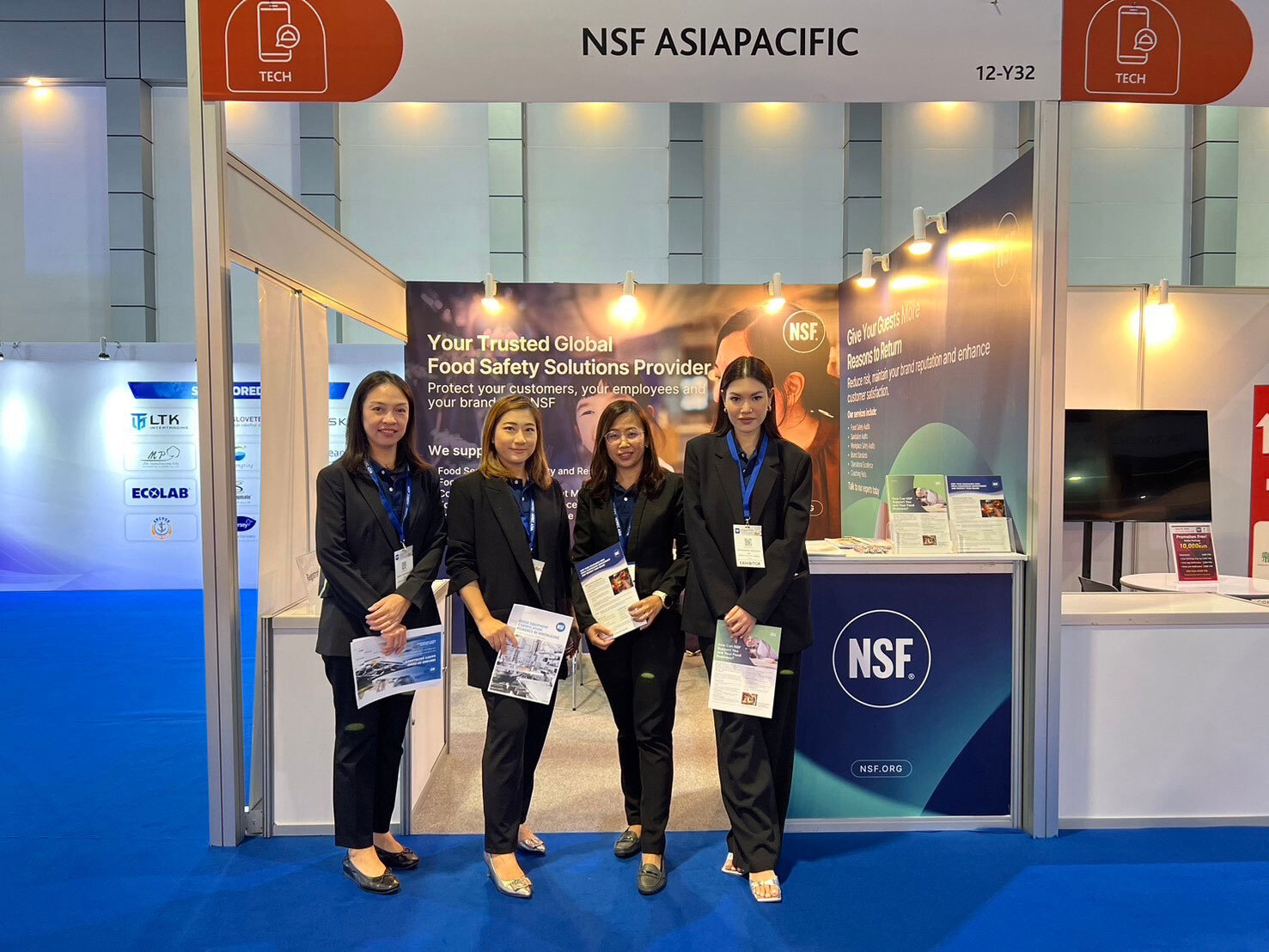Batch Testing, OOS Results & More - NSF July Pharma News

FDA Investigating Out-of-Specification (OOS) Test Results for Pharmaceutical Production’ Revised
The U.S. FDA has issued a revised version of their guidance on “Investigating Out-of-Specification (OOS) Test Results for Pharmaceutical Production,” which was originally issued in 2006. Most of the changes in the revised version are fairly minor, such as the changing throughout the document of the term “quality control unit” (QCU) to be just “quality unit” (QU).
The most substantive change is to the section “Concluding the Investigation” at the end of the guidance, where Part B. Cautions has been significantly expanded and divided into three new subparts, as follows:
- Averaging results from multiple sample preparations from the original sample
This repeats the 2006 guidance that in cases in which a series of assay results (intended to produce a single reportable result) are required and some of the individual results are OOS, firms should err on the side of caution and treat the average of these values as an OOS result, even if the average is within specification. - Averaging results from same final sample preparation
This is new in the 2022 guidance and applies when the test method specifies appropriate acceptance criteria for variability and a predefined number of replicates from the final diluted sample solution to arrive at a result. The example given is an HPLC method in which replicate injections are made from the same test vial. In these cases, given that the acceptance criteria for variability are met, the result of any individual replicate in and of itself should not cause the reportable result to be OOS. - Borderline results that are within specification
This new section covers the situation in which an assay result is low but within specifications. Here the new guidance simply states that “caution should be used in the release or reject decision.” While the revised guidance doesn’t say so, decisions in this situation will be helped if companies use control charts as part of their ongoing process-verification measures. In this case, company SPOs should require an out-of-trend investigation when a special cause indication (e.g., a point outside of the 3σ control limits) is noted, even if all results are within specification.
Webinar: Key Topics When Auditing a High-Speed Packaging Facility
Batch-Testing Medicinal Products in the United Kingdom
On May 31, 2022, the MHRA launched a consultation on “The future strategy for batch testing of medicinal products in Great Britain.” This consultation closes at 11:45 p.m. on July 26, 2022.
Much of the document consists of the background to the consultation, which, of course, is the UK leaving the EU. This section makes it clear that while the UK wished to have a mutual recognition agreement (MRA) with the EU, this was refused by the EU, and “an MRA with the EU is not a policy approach being considered as part of this consultation.” As Northern Ireland remains within the EU system for medicines, the consultation is only for Great Britain (GB).
The consultation consists of four policy options, as follows:
- No import testing or UK QP certification/release for listed countries
This is essentially maintenance of the current position, in which QP certification and batch testing in the EU/EEA are accepted and medicines can be imported into GB wholesalers who hold a WDA and nominate an RPi who verifies the EU/EEA QP sign-off and EU/EEA batch testing. - No import testing but implementing UK QP certification/release for listed countries
The MHRA would maintain a list of countries where it would accept import testing from. This would initially include all EU/EEA countries on the list, which would be subject to review after three years. This option would remove the RPi role, and importers would need to hold a manufacturing/import authorization (MIA) and a GMP certificate from the MHRA. - Full quality control batch testing and implementing UK QP certification/release for all non-MRA countries
This option applies the same regime to the EU/EEA countries as to GB. Again, importers would need to hold a manufacturing/import authorization (MIA) and a GMP certificate from the MHRA. - Reduced number of import tests and implementing UK QP certification/release for all listed countries
As in option B, the MHRA would maintain a list of acceptable countries, which would initially include all EU/EEA countries and be subject to review after three years.
Again, this removes the role of the RPi and requires a limited number of tests on medicines imported from listed countries. The tests required would depend on the product, such as identity and assay tests for a small molecule or requiring an impurity test for short-shelf-life products. This would be set out in the MA.
Importers would need to hold a manufacturing/import authorization (MIA) and a GMP certificate from the MHRA. The UK QP would be responsible for ensuring that the finished medicinal product batch has undergone the required tests in the UK and could then certify/release the batch for sale on the UK market.
A response to the consultation will be published in due course following its closure on July 26. It will form the conclusion of the review and trigger the two-year notice period after which the policy will be implemented.
Risk Management Plans to Mitigate the Potential for Drug Shortages
All regulatory agencies around the globe are concerned by shortages of medicines and are enacting new legislation and guidance covering this concern. In the EU, Regulation 2022/123 is starting to be implemented, and in the U.S. in 2020, Congress passed the Coronavirus Aid, Relief and Economic Security (CARES) Act to require manufacturers of critical drugs to develop, maintain and implement, as appropriate, risk management plans that identify and evaluate risks to a drug’s supply. As part of the implementation of the CARES Act, the FDA published draft guidance in May 2022 titled “Risk Management Plans to Mitigate the Potential for Drug Shortages.”
This draft guidance requires all “stakeholders” in the supply chain of the drug products to produce risk management plans. The stakeholders are divided into primary, secondary and others. These include the drug product manufacturer, API suppliers, excipient suppliers, and contract laboratories or contract packers.
The draft describes drug products for which risk management plans (RMPs) are required and a separate list of products for which they are recommended. The prescription products requiring RMPs are those that are:
- Life-supporting
- Life-sustaining
- Intended for use in the prevention or treatment of a debilitating disease or condition, including any such drug used in emergency medical care or during surgery or any such drug that is critical to the public health during a public health emergency
RMPs are recommended for the following products:
- Drug products intended to treat rare diseases or conditions
- Drug products that lack appropriate alternatives
- Medical countermeasures used in the event of a potential public health emergency
- Sole source products
- Drug products with only one API manufacturer in the product’s supply chain that has been appropriately qualified by the quality unit of the finished dosage form (FDF) establishment
- Drug products with only one FDF manufacturer in the product’s supply chain
- Drug products that are manufactured in a facility (including packaging facilities and laboratories) with an inspection in the last five years that was classified as official action indicated (OAI), and there is no other manufacturing facility in the product’s supply chain that is qualified to conduct that operation
The guidance on producing RMPs essentially follows the ICH Q9 quality risk management process, with sections on:
- Initiating an RMP
- Risk Assessment
- Risk Control
- Risk Review: Review Events
- Risk Communication
- Risk Management Tools
NSF Webinar: Update on EMA and FDA approach To Tackling Drug Shortages (2020)
Northern Ireland MHRA Authorisation Route (NIMAR)
The UK MHRA introduced a new route for the supply of medicines to Northern Ireland (NI) from Great Britain (GB) beginning on January 2022 called the Northern Ireland MHRA Authorisation Route (NIMAR). NIMAR provides a route for the lawful supply of prescription-only medicines (POMs) in compliance with UK and EU rules, when there is a risk that clinical need in NI for that product cannot be met. This includes the supply of medicines that are unlicensed in NI but which are licensed and approved in GB.
The May 2022 guidance provides the following information:
- Medicines eligible for supply via NIMAR
- Distinguishing between supply under NIMAR and Regulation 167 (specials route)
- Distribution of NIMAR medicines to NI
- Prescribing medicines on the NIMAR list
- Dispensing medicines on the NIMAR list
Stay Up to Date
NSF Health Sciences offers a pharmaceutical legislation update subscription service. The service provides you with 12 months of updates of changes to legislation and guidance that have the potential to impact the manufacture and distribution of medicinal/drug products. Full updates will be provided in September 2022 and February 2023, with interim summaries in December 2022 and May 2023. The updates will be provided as recordings through NSF’s online LMS portal and can be viewed at a time convenient to you. We will create an account for you on our LMS, and as each recorded update is made available, you will receive an enrollment email giving you a link to access the material. There will also be an opportunity for a Q&A with Pete Gough through two-hour live, virtual meetings each quarter.
Book a Call
Our pharma biotech experts have a wealth of experience working in the industry and as regulators with authorities around the world. Book a call with an expert by completing the form below.
Share this Article
How NSF Can Help You
Get in touch to find out how we can help you and your business thrive.

What’s New with NSF

NSF Shanghai Named Critical Site for NSF/ANSI 455 and NSF/ANSI 173 by ANSI National Accreditation Board
July 26, 2024
NSF Takes Center Stage at NEHA Annual Education Conference
July 25, 2024
NSF Asia Pacific Showcases Hospitality Solutions at THAIFEX HOREC Asia 2024 in Bangkok, Thailand
July 4, 2024